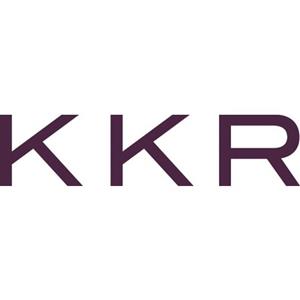Alibaba and Amazon: Titans of Tech and Retail in a Shifting Market
February 21, 2025, 9:49 pm
The business landscape is a battlefield. In this arena, two giants, Alibaba and Amazon, are redefining the rules. Alibaba recently reported a staggering 239% increase in net profit for the last quarter of 2024. This surge is not just a fluke; it’s a testament to the power of innovation. The company’s cloud business and artificial intelligence initiatives are driving this growth. Eddie Wu, the CEO, is steering the ship through turbulent waters, capitalizing on trends that others might overlook.
Meanwhile, Amazon has made headlines by surpassing Walmart in quarterly revenue for the first time. The e-commerce behemoth reported $187.8 billion in revenue, eclipsing Walmart’s $180.5 billion. This shift marks a significant moment in retail history. For years, Walmart held the crown as the top revenue generator. Now, Amazon is not just a retailer; it’s a formidable player in cloud computing as well.
But the market is not all sunshine and rainbows. U.S. markets took a hit recently. The S&P 500 fell by 0.43%, while the Dow Jones Industrial Average dropped 1.01%. Investors are skittish. The recent sell-off reflects concerns about consumer health, especially after Walmart hinted at slowing profit growth. When the largest retailer in the U.S. whispers caution, the market listens.
Across the Pacific, Japan is grappling with inflation. January’s inflation rate hit 4%, the highest since January 2023. Core inflation rose to 3.2%, surpassing expectations. This persistent inflation is a thorn in the side of the Bank of Japan, which has struggled to keep prices in check for over two years. The economic climate is tense, and consumers are feeling the pinch.
Back to Alibaba. The company’s shares soared by 8.1% in the U.S. and even higher in Hong Kong. The impressive net income of 48.945 billion yuan ($6.72 billion) signals strong demand for its services. The Cloud Intelligence Group’s 13% year-on-year sales growth is a bright spot in an otherwise challenging environment. Investors are taking notice, with GameStop CEO Ryan Cohen increasing his stake in Alibaba to around $1 billion. This move reflects confidence in Alibaba’s future.
Amazon’s victory over Walmart is not just a numbers game. It symbolizes a shift in consumer behavior. Shoppers are increasingly turning to online platforms for convenience. Amazon’s dual role as a retailer and cloud provider positions it uniquely in the market. The company is not just selling products; it’s shaping the future of commerce.
However, Walmart remains a formidable opponent. Despite losing the quarterly revenue battle, it is still expected to generate the highest annual revenue globally. The retail giant is not going down without a fight. Its vast network and established customer base provide a solid foundation. But the landscape is changing, and Walmart must adapt or risk being left behind.
In the U.K., KKR is eyeing Thames Water, offering about £4 billion ($5 billion) for the struggling utility. This move highlights the ongoing challenges in the utility sector. Thames Water is burdened with debt and facing a cash crisis. KKR’s proposal aims to stabilize the company without asset sales. It’s a delicate balancing act in a sector that is often overlooked but essential for daily life.
The broader market dynamics are complex. Bank of America warns that the S&P 500 is more expensive than average based on various indicators. Yet, there’s a glimmer of hope. Certain stocks may still have room to grow, even in a pricey market. Investors must tread carefully, balancing risk and reward.
On the geopolitical front, Russia’s relationship with the U.S. is evolving. After years of hostility, the Kremlin is softening its stance. The change is partly due to a new U.S. administration that is open to dialogue. This shift could have far-reaching implications, not just for the two countries but for global markets.
As tensions rise between Trump and Ukraine’s President Zelenskyy, the situation remains fluid. Putin’s praise for Trump amid the chaos indicates a potential thaw in relations. The world is watching closely, as these developments could reshape alliances and economic strategies.
In conclusion, the business world is a chess game. Alibaba and Amazon are making bold moves, while traditional players like Walmart must adapt to survive. Inflation in Japan and the evolving geopolitical landscape add layers of complexity. Investors must stay vigilant, ready to pivot as the market shifts. The future is uncertain, but one thing is clear: the battle for dominance in tech and retail is far from over.
Meanwhile, Amazon has made headlines by surpassing Walmart in quarterly revenue for the first time. The e-commerce behemoth reported $187.8 billion in revenue, eclipsing Walmart’s $180.5 billion. This shift marks a significant moment in retail history. For years, Walmart held the crown as the top revenue generator. Now, Amazon is not just a retailer; it’s a formidable player in cloud computing as well.
But the market is not all sunshine and rainbows. U.S. markets took a hit recently. The S&P 500 fell by 0.43%, while the Dow Jones Industrial Average dropped 1.01%. Investors are skittish. The recent sell-off reflects concerns about consumer health, especially after Walmart hinted at slowing profit growth. When the largest retailer in the U.S. whispers caution, the market listens.
Across the Pacific, Japan is grappling with inflation. January’s inflation rate hit 4%, the highest since January 2023. Core inflation rose to 3.2%, surpassing expectations. This persistent inflation is a thorn in the side of the Bank of Japan, which has struggled to keep prices in check for over two years. The economic climate is tense, and consumers are feeling the pinch.
Back to Alibaba. The company’s shares soared by 8.1% in the U.S. and even higher in Hong Kong. The impressive net income of 48.945 billion yuan ($6.72 billion) signals strong demand for its services. The Cloud Intelligence Group’s 13% year-on-year sales growth is a bright spot in an otherwise challenging environment. Investors are taking notice, with GameStop CEO Ryan Cohen increasing his stake in Alibaba to around $1 billion. This move reflects confidence in Alibaba’s future.
Amazon’s victory over Walmart is not just a numbers game. It symbolizes a shift in consumer behavior. Shoppers are increasingly turning to online platforms for convenience. Amazon’s dual role as a retailer and cloud provider positions it uniquely in the market. The company is not just selling products; it’s shaping the future of commerce.
However, Walmart remains a formidable opponent. Despite losing the quarterly revenue battle, it is still expected to generate the highest annual revenue globally. The retail giant is not going down without a fight. Its vast network and established customer base provide a solid foundation. But the landscape is changing, and Walmart must adapt or risk being left behind.
In the U.K., KKR is eyeing Thames Water, offering about £4 billion ($5 billion) for the struggling utility. This move highlights the ongoing challenges in the utility sector. Thames Water is burdened with debt and facing a cash crisis. KKR’s proposal aims to stabilize the company without asset sales. It’s a delicate balancing act in a sector that is often overlooked but essential for daily life.
The broader market dynamics are complex. Bank of America warns that the S&P 500 is more expensive than average based on various indicators. Yet, there’s a glimmer of hope. Certain stocks may still have room to grow, even in a pricey market. Investors must tread carefully, balancing risk and reward.
On the geopolitical front, Russia’s relationship with the U.S. is evolving. After years of hostility, the Kremlin is softening its stance. The change is partly due to a new U.S. administration that is open to dialogue. This shift could have far-reaching implications, not just for the two countries but for global markets.
As tensions rise between Trump and Ukraine’s President Zelenskyy, the situation remains fluid. Putin’s praise for Trump amid the chaos indicates a potential thaw in relations. The world is watching closely, as these developments could reshape alliances and economic strategies.
In conclusion, the business world is a chess game. Alibaba and Amazon are making bold moves, while traditional players like Walmart must adapt to survive. Inflation in Japan and the evolving geopolitical landscape add layers of complexity. Investors must stay vigilant, ready to pivot as the market shifts. The future is uncertain, but one thing is clear: the battle for dominance in tech and retail is far from over.

